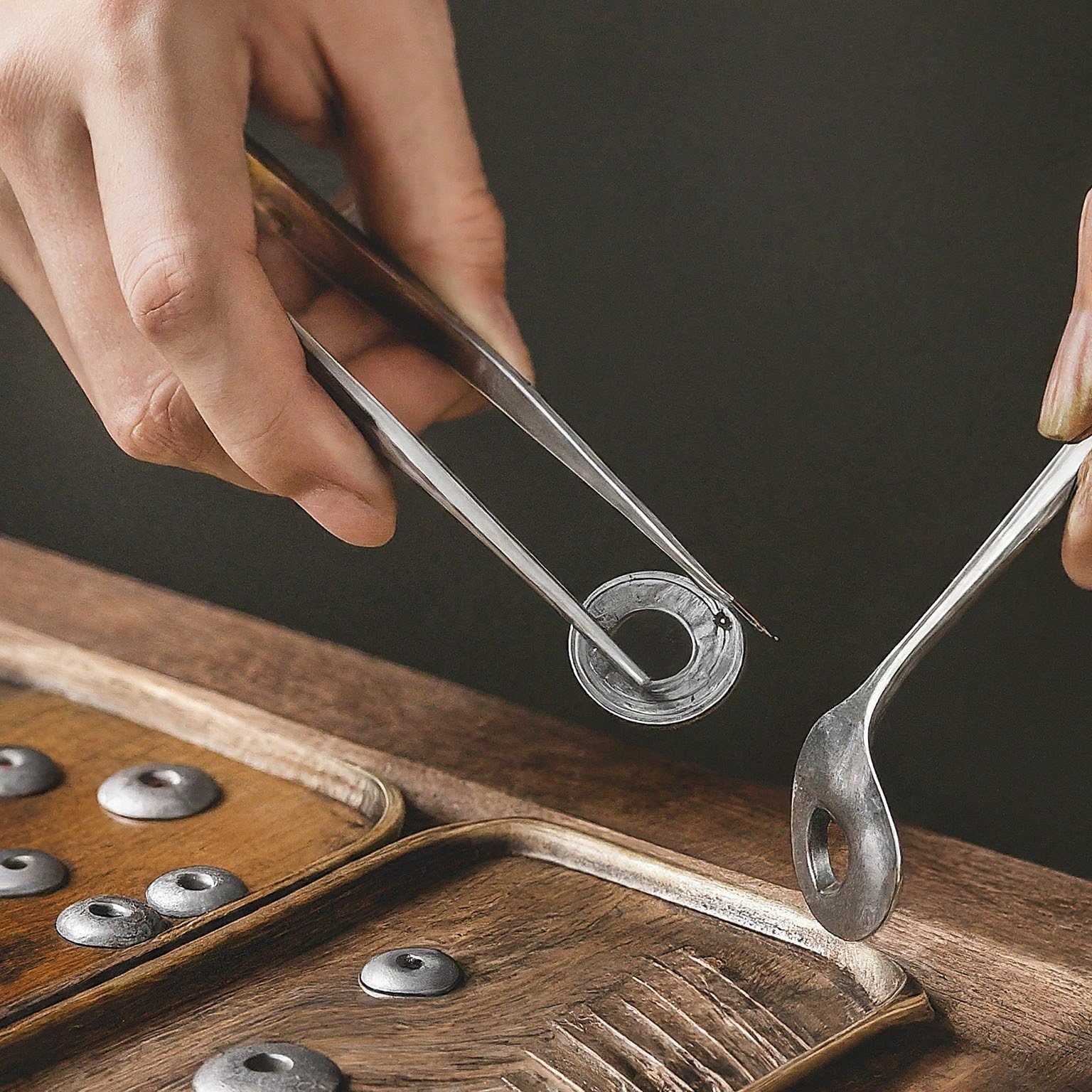How to Choose the Right Bimetallic Washer

Bimetallic washers are specialized components that offer a unique combination of properties by merging two different metals into a single unit. Unlike traditional washers, they provide enhanced performance, corrosion resistance, and cost-effectiveness. However, selecting the right bimetallic washer for your specific application can be challenging due to the various options available.
This guide will walk you through the world of bimetallic washers, explaining their benefits, types and many more.
Table of Contents
-
What are Bimetallic Washers?
-
Why Use Bimetallic Washers?
-
How are Bimetallic Washers Made?
-
What are the Different Types of Bimetallic Washers?
-
Benefits of Using Bimetallic Washers
-
Common Applications of Bimetallic Washers
-
How to Choose the Right Bimetallic Washer for Your Needs
-
Conclusion

What are Bimetallic Washers?
Bimetallic washers are specialized components combining two different metals to offer unique properties. Unlike traditional washers, they provide a combination of characteristics, such as strength, corrosion resistance, and conductivity, in a single component. This makes them ideal for various industrial applications where specific performance requirements are critical.
Why Use Bimetallic Washers?
- Enhanced Performance: Bimetallic washers often outperform single-metal washers due to their combined properties. For instance, a combination of stainless steel and copper can offer both strength and conductivity.
- Corrosion Resistance: In environments prone to corrosion, bimetallic washers can provide superior protection compared to single-metal alternatives.
- Cost-Effective: By combining different metals, bimetallic washers can offer a cost-effective solution compared to using solid high-performance metals.
How are Bimetallic Washers Made?
The manufacturing process of bimetallic washers involves bonding two different metal layers together. This is typically achieved through techniques like cladding, explosion bonding, or diffusion bonding. The result is a single washer with distinct metal layers, each contributing specific properties.
What are the Different Types of Bimetallic Washers?
The choice of metals used in bimetallic washers determines their properties and applications. Common combinations include:
- Stainless steel and copper: Offers a combination of strength, corrosion resistance, and thermal conductivity.
- Stainless steel and nickel: Provides excellent corrosion resistance and high-temperature performance.
- Aluminum and steel: Combines lightweight properties with strength.

Common Applications of Bimetallic Washers
You'll find bimetallic washers in a variety of industries due to their unique properties. Here are some common applications:
- Electronics: Used for their electrical conductivity and thermal management.
- Automotive: Essential for providing durable connections and managing thermal expansion.
- Aerospace: Ensures reliable performance in extreme conditions.
- Construction: Utilized for their strength and corrosion resistance.
- Manufacturing: Offers reliable fastening solutions in machinery and equipment.
Benefits of Using Bimetallic Washers
So, why should you opt for bimetallic washers? Here are some compelling benefits:
- Enhanced performance: Combines the best properties of two metals for superior performance.
- Versatility: Suitable for a wide range of applications across various industries.
- Longevity: Durable and resistant to wear and tear, reducing the need for frequent replacements.
- Cost-effective: Long-lasting performance translates to cost savings over time.
How to Choose the Right Bimetallic Washer for Your Needs
Selecting the appropriate bimetallic washers involves considering several factors:
- Application Requirements: Identify the specific needs of your application, such as load-bearing capacity, corrosion resistance, temperature tolerance, and conductivity.
- Metal Compatibility: Ensure that the chosen metals are compatible with the surrounding materials to prevent galvanic corrosion.
- Manufacturer Expertise: Partner with reputable shim manufacturers or bimetallic washer manufacturers who can provide guidance and customized solutions.
- Cost-Benefit Analysis: Evaluate the overall cost-effectiveness of bimetallic washers compared to single-metal alternatives.

Conclusion
Bimetallic washers offer a versatile solution for various industrial applications, providing enhanced performance and cost-effectiveness. By carefully considering your specific requirements and consulting with experienced shim manufacturers , you can select the ideal bimetallic washer for your project.
Author
Meet Sachin, our expert author in industrial materials with a deep understanding of brass shim sheets. With years of experience, Sachin brings valuable insights and expertise to this guide, making him a trusted source for all things related to brass shim sheets. Join us as we delve intothe art of crafting brass shim sheets with Sachin leading the way.
List Other similar blogs







